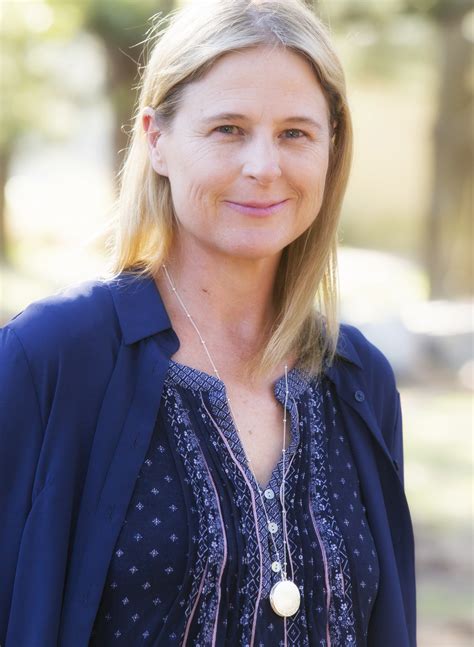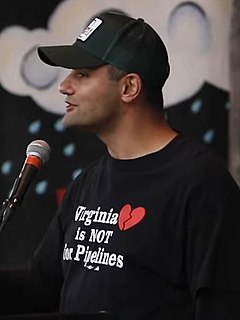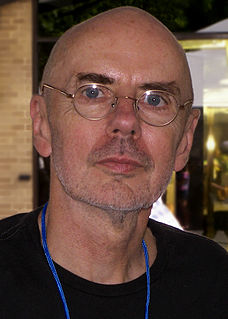Top 520 Document Quotes & Sayings - Page 9
Explore popular Document quotes.
Last updated on April 17, 2025.
In its main features the Declaration of Independence is a great spiritual document. It is a declaration not of material but of spiritual conceptions. Equality, liberty, popular sovereignty, the rights of man - these are not elements which we can see and touch. They are ideals. They have their source and their roots in the religious convictions. They belong to the unseen world. Unless the faith of the American people in these religious convictions is to endure, the principles of our Declaration will perish. We can not continue to enjoy the result if we neglect and abandon the cause.
God built the Earth in seven days and seven nights, that's how I'm going to approach doing the album. So when it's time for me to actually finish up the album and do final cuts of everything, I'm going to line it up in seven days and seven nights. I'm going to document it, out the footage out, show people it's not a fluke.
Today there really aren't that many Fundamentalists left; I don't know if you know that or not, but they are such a minority; there aren't that many Fundamentalists left in America. ... Now the word "fundamentalist" actually comes from a document in the 1920s called the Five Fundamentals of the Faith . And it is a very legalistic, narrow view of Christianity, and when I say there are very few fundamentalists, I mean in the sense that they are all actually called fundamentalist churches, and those would be quite small. There are no large ones.
Having access to mobile phones and being able to document your own life brings people together. Technology has a lot to do with how the world is developing at the moment because there are very raw and pure and primal emotions that people are communicating to each other over the Internet. It's like our new feathers, our new face paint. We're still trying to find love and friendship and cool music, but now it's over the Internet.
The Declaration of Independence was to set forth the moral justification of a rebellion against a long-recognized political tradition - the divine right of kings. At issue was the fundamental question of whether men's rights were God-given or whether these rights were to be dispensed by governments to their subjects. This document proclaimed that all men have certain inalienable rights. In other words, these rights came from God.
This is what I want you all to do. I want you to open a new document and type up a list of three problems in your life. Not the universe's life - your own. Underneath, type the solutions." "If we know the solutions," said Belle, "they're not problems." "Exactly," said Denny. "You do know the answers to most of your problems. Somewhere deep inside, you know.
The real truth - like anything, you have an idea about something you might write and it changes. People reflect on it or you get other ideas and maybe your original idea is radically different than how it ends up being. It's not a theorem. You don't sit down and prove something. You start with an initial idea and it grows and grows. The math of the narrative changes. In some ways your original document and what the film ends up being are quite different.
Until the 1930s, the Constitution served as a major constraint on federal economic interventionism. The government's powers were understood to be just as the framers intended: few and explicitly enumerated in our founding document and its amendments. Search the Constitution as long as you like, and you will find no specific authority conveyed for the government to spend money on global-warming research, urban mass transit, food stamps, unemployment insurance, Medicaid, or countless other items in the stimulus package and, even without it, in the regular federal budget.
One of the biggest lessons when it comes to working with friends and family is to have the confidence to fire your mother-in-law if need be. The way to keep issues with loved ones out of the boardroom is to create what I call a start-up prenup, a document that puts the rights and responsibilities of each partner on paper. It's OK to start a business with those you love, but make sure you have a plan if the love goes away. But too often I've seen the dreadful alternative. My advice is formalize your partnership agreement.
I think that our republic was created in a way that is meant to be as inclusive as possible. Obviously that means something a little different now than it was back then, but the principles are still the same and there's plenty there for all of us to rally around. Even when I was sworn in, I swore in on the U.S. and Virginia constitutions, not on any religious document, to send a point that as a proud Muslim American, I'm very proud to be able to be elected to defend the Virginia and U.S. constitutions, because that is our charge as legislators and we shouldn't forget that.
The Senate, compared to the House, is where things are supposed to slow down, by design, Founding Father design. The Founding Fathers were hell-bent to stop government action. The Constitution limited government. And that's why people like Obama and Democrats call it a charter of negative liberties because it limits government. It's an anti-government, pro-citizen document. And the founders wanted to make it hard.
In those days [batch processing] programmers never even documented their programs, because it was assumed that nobody else would ever use them. Now, however, time-sharing had made exchanging software trivial: you just stored one copy in the public repository and therby effectively gave it to the world. Immediately people began to document their programs and to think of them as being usable by others. They started to build on each other's work.
Expert estimates of probability are often off by factors of hundreds or
thousands. [...] I used to be annoyed when the margin of error was high in
a forecasting model that I might put together. Now I view it as perhaps the
single most important piece of information that a forecaster provides. When
we publish a forecast on FiveThirtyEight, I go to great lengths to document
the uncertainty attached to it, even if the uncertainty is sufficiently
large that the forecast won't make for punchy headlines.
Others have questions about how it is that God and human beings can both be speaking through the one document such that you can see and read the personalities of the human authors with their individual vocabularies and literary genres, and yet this is nevertheless the word of God. How can that be? This is quite a contrast with Islam, for example, which holds that the Koran has been dictated in Arabic by God and as a result Mohammed is nothing more than the one who memorizes the word so as to pass it on. There is nothing of human contribution.
Let's talk about how to fill out your 1984 tax return. Here's an often overlooked accounting technique that can save you thousands of dollars: For several days before you put it in the mail, carry your tax return around under your armpit. No IRS agent is going to want to spend hours poring over a sweat-stained document. So even if you owe money, you can put in for an enormous refund and the agent will probably give it to you, just to avoid an audit. What does he care? It's not his money.
Much of the Constitution is remarkably simple and straightforward - certainly as compared to the convoluted reasoning of judges and law professors discussing what is called 'Constitutional law,' much of which has no basis in that document....The real question [for judicial nominees] is whether that nominee will follow the law or succumb to the lure of 'a living constitution,' 'evolving standards' and other lofty words meaning judicial power to reshape the law to suit their own personal preferences.
Bill Clinton, who, to his credit, has established a clear and consistent foreign policy, which is as follows: Whenever the president of the United States gets anywhere near any foreign head of state, living or dead, he gives that leader a big old hug. This has proven to be an effective way to get foreign leaders to do what we want: Many heads of state are willing to sign any random document that President Clinton thrusts in front of them, without reading it, just so he will stop embracing them.
You recalled the 1956 declaration, and this declaration established the rules that should be followed by both sides and that should be put into the foundation of a peace treaty. If you carefully read the text of this document, you will see that the declaration will take effect after we sign a peace treaty and the two islands [Kunashir and Shikotan] are transferred to Japan. It does not say on what terms they should be transferred and what side will exercise sovereignty over them.
Can any rational person believe that the Bible is anything but a human document? We now know pretty well where the various books came from, and about when they were written. We know that they were written by human beings who had no knowledge of science, little knowledge of life, and were influenced by the barbarous morality of primitive times, and were grossly ignorant of most things that men know today.
Do yourself and your family a favor: Decide right now that you will write a self-help book someday. I'm serious. A self-help book is a great way to capture what you think makes a good person, a good life and a good world. It's also a "forever document" that you can pass down to future generations. We need more people sharing positive messages and books with the world. Why not be one of those people?
I also watched where he [Ted Cruz] did a forum that looked like it came right out of a government agency, and it said on top, "Voter Violation," and then it graded you and it scared the hell out of people, and it said the only way you clear up the violation, essentially, is to go and vote for Ted Cruz. I watched that fraudulent document, and I said it's the worst thing I've ever seen in politics.
The most successful revolutions aren't those that are celebrated with parades and banners, drums and trumpets, cannons and fireworks. The really successful revolutions are those that occur quietly, unnoticed, uncommemorated. We don't celebrate the day the United States Constitution was destroyed; it didn't happen on a specific date, and most Americans still don't realize it happened at all. We don't say the Constitution has ceased to exist; we merely say that it's a 'living document.' But it amounts to the same thing.
Towards the end of your life you have something like a pain schedule to fill out - a long schedule like a federal document, only it's your pain schedule. Endless categories. First, physical causes - like arthritis, gallstones, menstrual cramps. New category, injured vanity, betrayal, swindle, injustice. But the hardest items of all have to do with love. The question then is: So why does everybody persist? If love cuts them up so much.
Ours was the first revolution in the history of mankind that truly reversed the course of government, and with three little words: 'We the people.' 'We the people' tell the government what to do, it doesn't tell us. 'We the people' are the driver, the government is the car. And we decide where it should go, and by what route, and how fast. Almost all the world's constitutions are documents in which governments tell the people what their privileges are. Our Constitution is a document in which 'We the people' tell the government what it is allowed to do. 'We the people' are free.
It's the story of my life. You see, the quality of any advice anybody has to offer has to be judged against the quality of life they actually lead. Now, as you look through this document you'll see that I've underlined all the major decisions I ever made to make the stand out. They're all indexed and cross-referenced. See? All I can suggest is that if you take decisions that are exactly opposite to the sort of decisions that I've taken, then maybe you won't finish up at the end of your life" --she paused, and filled her lungs for a good should--"in a smelly old cave like this!
If [Pope's Francis] media-generated popularity, fragile as that may turn out to be when the world discovers that the pope is really a Catholic, opens windows of possibility for explaining that divine mercy leads us to the truths God revealed to us (and inscribed into the world and into us), then his reanimation of the papacy will advance the "Church in permanent mission" for which he called in Evangelii Gaudium, which is the grand strategy document of his pontificate.
It is instructive to see how organizations pursue their goal of reducing errors and uncertainty. They impose standards, employ checklists, demand that knowledge workers list assumptions for their conclusions and document all sources. These actions either directly interfere with forming insights or create an environment where insights and discoveries are treated with suspicion because they might lead to errors. They signal to knowledge workers that their job is not to make mistakes. Even if they don't make discoveries, no one can blame them as long as they don't make mistakes.
There's the trope about an impending "global-warming encyclical." The pope is preparing an encyclical on nature and the environment, including the human environment (which includes the moral imperative of a culturally affirmed and legally recognized right to life from conception until natural death). So what happens? A low-ranking Vatican official for self-promotion gives an interview to the Guardian in which he claims that this is a global-warming encyclical - which he couldn't possibly have known, as the document wasn't drafted yet.
Ambitious young women today are taught to ignore or suppress every natural instinct, if it conflicts with the feminist agenda posed on them. All literary and artistic works, no matter how great, that document the ambivalence of female sexuality they are trained to dismiss as "misogynous." In other words, their minds are being programmed to secede from their bodies ... there is a huge gap between feminist rhetoric and women's actual sex lives, where feminism is of little help except with a certain stratum of deferential, malleable, white middle-class men.
The Bible became the book of books, but it is not one document. It is a mystical library of interwoven texts by unknown authors who wrote and edited at different times with widely divergent aims. This sacred work of so many epochs and so many hands contains some facts of provable history, some stories of unprovable myth, some poetry of soaring beauty, and many passages of unintelligible, perhaps coded, perhaps simply mistranslated, mystery. Most of it is written not to recount events but to promote a higher truth—the relationship of one people and their God.
I went off to college, a good, middle-class, very proper college, a Brethren institution, where two years of Bible study are required for graduation. It was a good, sound, thorough, but completely biased evaluation of the Bible, and I was delighted with it, because it helped to document my doubts; it gave me a framework within which I could be critical.My independent study continued for 20 years after this. So I do know the Bible very well from a Protestant point of view.
Photojournalist? With a few exceptions, those of us working as photojournalists might now more appropriately call ourselves illustrators. For, unlike real reporters, whose job it is to document what's going down, most of us go out in the world expecting to give form to the magazine, or to newspaper editor's ideas, using what's become over the years a pretty standardized visual language. So we search for what is instantly recognizable, supportive of the text, easiest to digest, or most marketable - more mundane realities be damned.
My writing has to excite people and depict or include their experiences. That's part of my process - to go out and interact with people. It's very much like an archival process. I understand that the Brothers Grimm would go out and get people talking so they could document folk tales that weren't being documented any other way. I try to offer a little bit of myself - some experience from my life that evokes stories in other people.
We should remember that the Declaration of Independence is not merely a historical document. It is an explicit recognition that our rights derive not from the King of England, not from the judiciary, not from government at all, but from God. The keystone of our system of popular sovereignty is the recognition, as the Declaration acknowledges, that 'all men are created equal' and 'endowed by their Creator with certain unalienable Rights.' Religion and God are no alien to our system of government, they're integral to it.
When film is not a document, it is dream. That is why Tarkovsky is the greatest of them all. He moves with such naturalness in the room of dreams. He doesn't explain. What should he explain anyhow? He is a spectator, capable of staging his visions in the most unwieldy but, in a way, the most willing of media. All my life I have hammered on the doors of the rooms in which he moves so naturally. Only a few times have I managed to creep inside. Most of my conscious efforts have ended in embarrassing failure - The Serpent's Egg, The Touch, Face to Face and so on.
There's something going on right now in America, where the American spirit or character is reasserting itself around liberty. I think it's an important time, and I'm trying to document that as an artist. If I just filter what I read through the media, if I just go through what I read through the media, I'm not really in touch with the world I grew up in. I know there's a gap there, I talk to my relatives, I talk to people I meet traveling around, and their mind is on something completely different.
Ed Lawler and I document that the key to creating good, productive jobs in all industries is to organize work processes and systems in ways that allow employees to contribute significant amounts of "added value" to the products they make and services they provide. When mangers give employees the organizational structure, resources, and authority needed for them to contribute their ideas and efforts, American workers, like those at Harley-Davidson, almost always prove capable of effectively competing against their overseas counterparts.
...The Bill of Rights is a literal and absolute document. The First Amendment doesn't say you have a right to speak out unless the government has a 'compelling interest' in censoring the Internet. The Second Amendment doesn't say you have the right to keep and bear arms until some madman plants a bomb. The Fourth Amendment doesn't say you have the right to be secure from search and seizure unless some FBI agent thinks you fit the profile of a terrorist. The government has no right to interfere with any of these freedoms under any circumstances.
(Five) thinkers since Galileo, each informing his successor of what discoveries his own lifetime had seen achieved, might have passed the torch of science into our hands as we sit here in this room. Indeed, for the matter of that, an audience much smaller than the present one, an audience of some 5 or 6 score people, if each person in it could speak for his own generation, would carry us away to the black unknown of the human species, to days without a document or monument to tell their tale.
I get so much energy and I learn so much through collaborating with other people. Ultimately, I think the best music will always be created through collaborations - pooling together skills to create something bigger than any individual. I like to use my own SOPHIE material to present ideas in their most extreme, un-compromised form. I really use those opportunities to express exactly where I'm at in terms of production and writing ideas, as a document of my thoughts and feelings, as well.





































